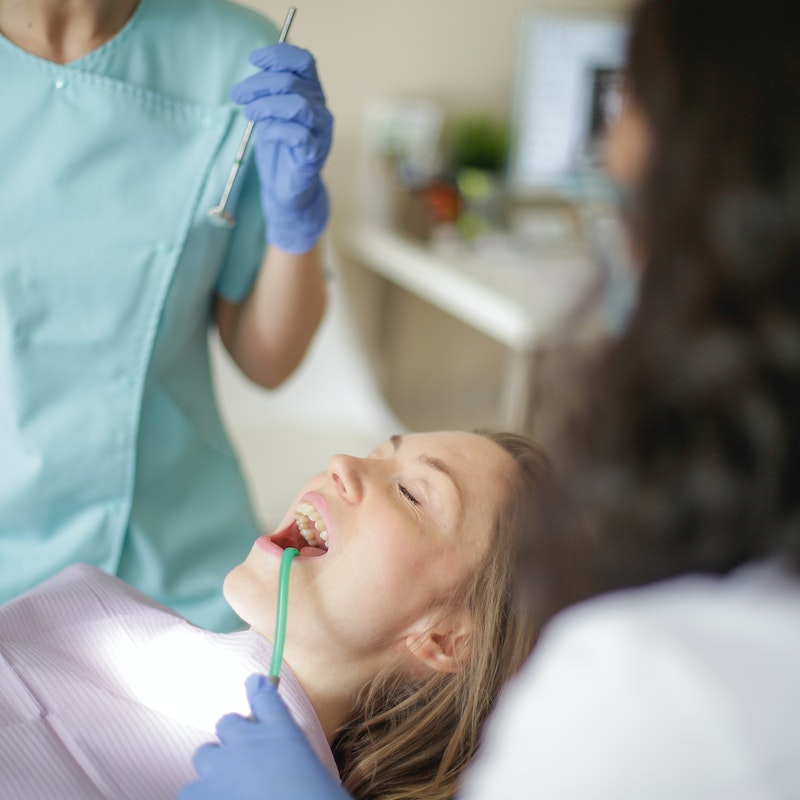Sep
19

The journey to a dazzling smile often requires a combination of various dental procedures, from tooth whitening to dental implants. But if you’ve had a tooth extracted, how soon after tooth extraction can you have an implant? The short answer is simple: it depends! In the following article, we’re going to take a look at some key factors to consider after tooth extraction, and how long you might typically wait before you can safely get an implant. Let’s take a look!
Understanding Healing After a Tooth Extraction
Firstly, it’s important to understand the healing process post-tooth extraction. Upon extracting a tooth, the body initiates a natural healing process; the socket, where the tooth once was, starts to fill with blood, forming a clot, and this clot is pivotal for protecting the bone and nerves underneath. Gradually, over weeks and months, soft tissue grows over the clot, and bone begins to regenerate in the socket.
Generally, for straightforward extractions, the soft tissue healing takes about 2-3 weeks. However, the bone regeneration process is slower and can range anywhere from a few months to over six months, meaning that the actual healing time will vary depending on the individual’s health, the care post-extraction, and the specific nature of the extraction.
Also Read: 5 Reasons to Consider a Dental Implant
Risks of Immediate Implant Placement
While immediate implant placements, also known as same-day implants, are growing in popularity, they are not devoid of risks: one of the primary concerns is the potential for an implant to disrupt the natural clotting and healing process post-extraction. This disruption can lead to complications such as infections or failure of the implant to properly integrate with the jawbone.
Moreover, the integrity of the socket walls post-extraction plays a crucial role: if the walls are damaged or too thin, they might not support the immediate placement of dental implants. The premature introduction of an implant in such cases can lead to long-term complications, including implant misalignment or failure.
What Factors Influence the Timing of a Dental Implant?
Individual Healing Rates
As each person’s healing rate varies, some might be eligible for an implant sooner than others. Factors such as age, overall health, and the presence of conditions like diabetes can influence healing.
Condition of the Jawbone
The quality and quantity of jawbone available also tends to play a significant role: if a patient has suffered bone loss due to periodontal disease or other conditions, they might need a bone graft, which will extend the waiting period before implant placement.
Site of Extraction
Front teeth generally have single roots, and a straightforward extraction might allow for faster implant placement. However, molars, which have multiple roots, might necessitate a longer healing time.
Type of Extraction
A simple extraction poses fewer complications compared to a surgical extraction; surgical extractions, which are often required for impacted teeth, generally demand a longer healing period before considering an implant.
Implant Success and Long-Term Considerations
A successful dental implant isn’t solely about the procedure itself, but instead involves a big-picture view of long-term health and functionality; in short, this means that patience in allowing adequate healing after extraction is pivotal. Rushing the process can compromise the stability of the implant, making it susceptible to failures or complications in the future.
Additionally, the alignment and positioning of the implant are vital; an improperly placed implant can lead to bite issues or aesthetic imperfections, plus, if an implant doesn’t integrate well with the jawbone – a process termed osseointegration – it might become loose or cause discomfort, potentially leading to implant failure.
Always Consult With Your Dentist
Like any other medical procedure, every dental situation is unique, and is likely to be influenced by a range of individual factors, from medical history to age. This means that generic guidelines can only provide a foundational understanding, and for a tailored approach, it’s crucial to consult with a reputable dentist. A trained dentist will be able assess your oral health, the condition of your jawbone, and advise on the optimal time frame for your implant procedure and other important questions such as the duration of the dental implant procedure.
Key Takeaways
- Healing is paramount: Always allow sufficient time for your gums and jawbone to heal post-extraction, as this ensures a robust foundation for your future implant.
- Individual factors matter: Personal health, bone condition, and extraction details heavily influence the timing of implant placement.
- Risks are real: Immediate or premature implant placements carry inherent risks. Being cognisant of these risks and addressing them with your dentist is essential.
- Expert advice is invaluable: Always consult with a dentist before making decisions about dental implants post-extraction. Their expertise will guide you to the best outcome for your individual situation.
Get ready for your implant with the articles below:










